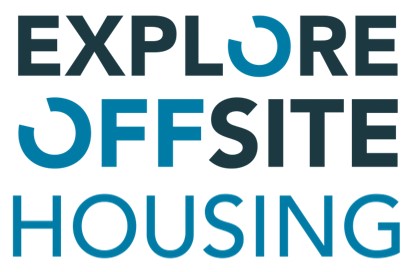The UK government is encouraging new innovative entrants to the housing market to help deliver its housing objective of one million homes by the end of 2020. Many in the house-building industry agree that the UK’s housing shortfall is only going to be addressed by radical innovation in building practices, opening the way for modular housing.
Offsite construction is the manufacture and pre-assembly of construction elements or components in a factory environment prior to installation onsite at their intended, final location. Offsite construction currently accounts for less than 10% of total construction output, but is on an upward trajectory. Strong drivers for growth are underpinned by the need for significantly more housing, the availability of new technologies and an impetus for extending the benefits of offsite construction.
Taking place on 10 & 11 April 2018, Explore Offsite Housing will get to grips with the UK housing crisis but is there now a climate for change in the industry?
Offsite construction has enjoyed considerable success in the mainstream construction industry and now there are few large buildings in which the construction process has not been influenced by the benefits which offsite products can bring. The house-building sector is unusual in that this has not happened on a vast scale. However, the reasons for this are clear: house-building has its own set of economic and technical drivers and they are very different to those of the mainstream construction industry. The combination of very low construction costs, and the need for very agile production processes, represents a difficult target market for the offsite producer. To crack this market, offsite producers will need to innovate. More factories will have to be built and new products will have to be developed. Investment decisions will have to be taken and cultural changes will have to be brought about. To embark on a route which holds such risks will require that business leaders have great confidence that the future market is real.
Jenny Coombs, Project Director for Local Partnerships – has significant residential delivery experience in the housing association sector as well as having had a senior management role in a local authority. Jenny will be expanding on ‘Where, Why and How’ public-sector organisations are using offsite construction for housing: its benefits and challenges at Explore Offsite Housing.
Offsite construction offers a route to delivering homes that can be built to higher sustainability standards, with potential advantages in terms of build quality, speed of delivery, construction health and safety, energy-in-use, whole-life carbon footprint, and reduced transport pollution (congestion and emissions). Of these advantages, the ones which are most easily quantified are the financial benefits to the housebuilder associated with increased speed of construction and reduced working capital requirements, the ease of achieving higher quality construction (driven by the need to increase energy performance), and the savings to the householder which arise from reduced energy-in-use.
Jenny Coombs will be joined at Explore Offsite Housing by an outstanding speaker line-up that includes: Brian Ham, Executive Director of Development, Home Group; Paul Williamson Managing Director: Modular Construction, Swan Housing; Peter Andrew, Deputy Chairman, Home Builders Federation; Stephen Haigh Chief Executive, Live Verde; Sir Edward Lister, Chair, Homes England; Bjorn Conway, Chief Executive Officer, Ilke Homes and more. For the full list of speakers go to: http://www.exploreoffsite.co.uk/2018-events/explore-offsite-housing/conference-speakers/




















